November National Poll: Support for Impeachment Declines; Biden and Sanders Lead Democratic Primary
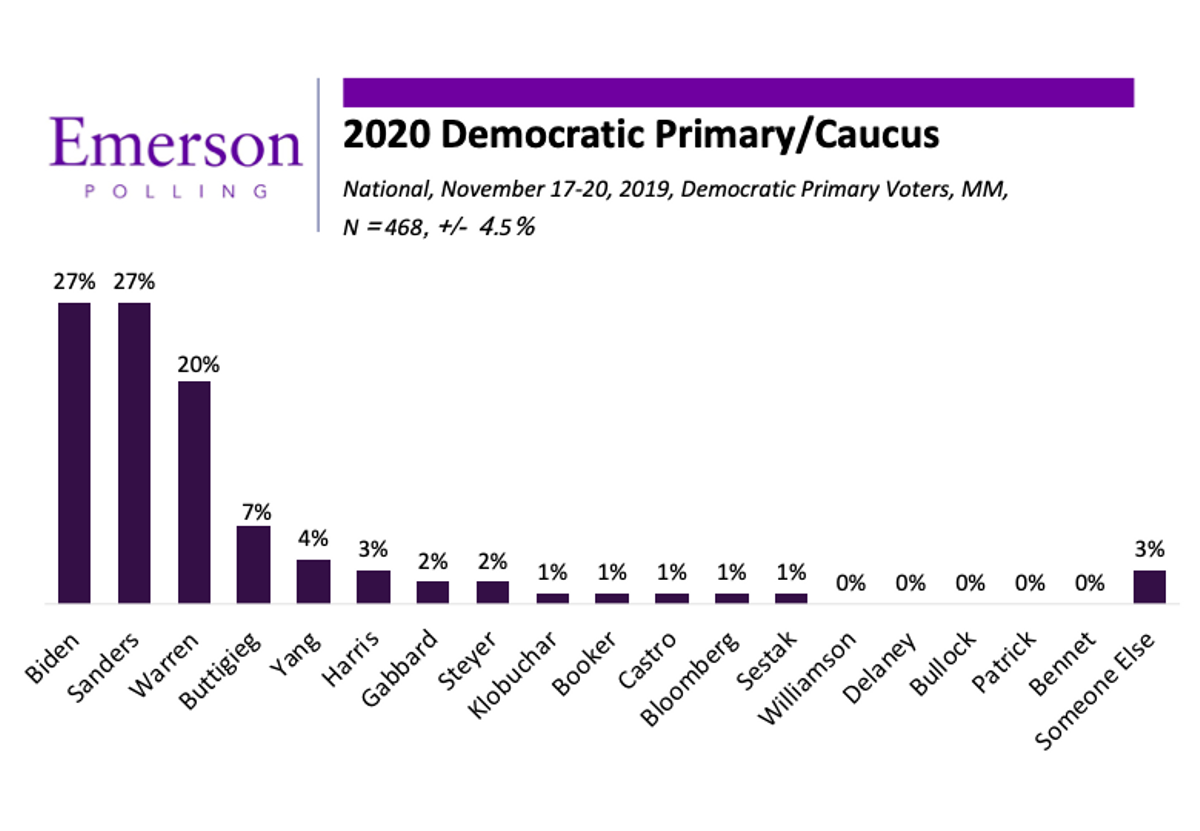
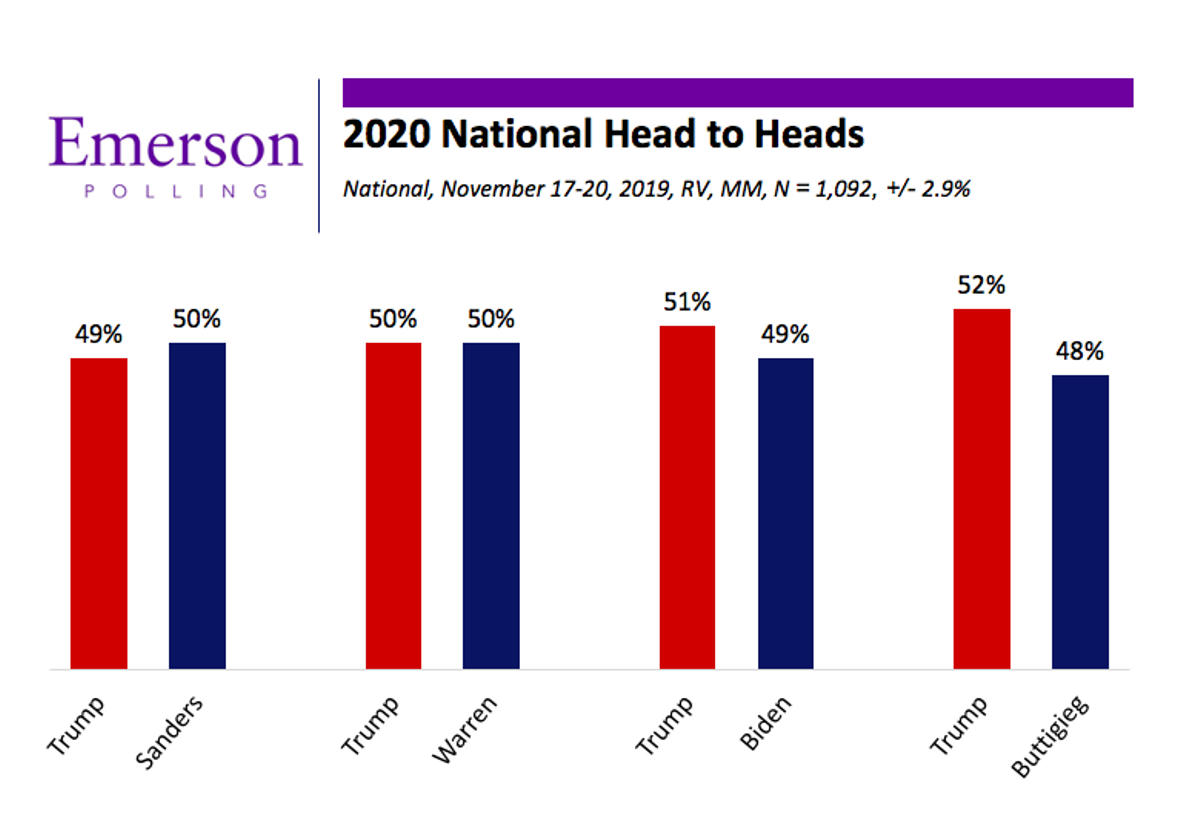
A new Emerson poll finds President Trump’s approval has increased in the last month with 48% approval and 47% disapproval, a bounce from 43% approval in the last Emerson National poll in October. Support for impeachment has flipped since October from 48% support with 44% opposing to now 45% opposed and 43% in support. The biggest swing is among Independents, who oppose impeachment now 49% to 34%, which is a reversal from October where they supported impeachment 48% to 39%.
The impeachment hearings are being watched or followed by 69% of voters. A plurality (26%) is getting their information from Fox News, 24% are getting their information from 1 of the 3 network stations (ABC, NBC, CBS), 16% are watching CNN, 15% MSNBC and 19% are going somewhere else for their information.
The president’s support in the Republican primary increased this month to 93% against primary challengers Bill Weld and Joe Walsh. Trump’s head to head matchups in the General Election against the top Democratic candidates have also tightened since October, now trailing Sanders by 1 point and leading his other three potential opponents.
The economy is the number one issue for Republicans (50%) and Independents (35%), while for Democrats, healthcare ranked highest at 25%. Overall, the economy continues to be the most important issue for one in three voters (34%) in deciding who they will vote for President. Healthcare is the second most important overall at 18%, followed by immigration and social issues at 10% each. The environment and impeachment were next at 7% apiece, with foreign policy being the least important issue for voters at 3%.
Senator Bernie Sanders is gaining momentum in the race for the Democratic nomination, increasing 2 points from October to at 27%. Former Vice President Joe Biden is also at 27%, holding steady from October. Senator Elizabeth Warren is in third place at 20%, down a point. Mayor Pete Buttigieg is at 7% and Andrew Yang rounds out the top 5 at 4%. All other candidates are below 4%. (MM, n= 468, +/- 4.6%)
Spencer Kimball, Director of Emerson Polling says that “Biden and Sanders continue to hold their bases, which should concern Warren, as she has waited for one of the front runners to slip these past few months – yet, their support seems to be crystalizing.”
Sanders continues to hold a strong lead with younger voters in the primary. Among voters under 50, Sanders received 37% support, followed by Warren with 22%, Biden with 15% and Yang with 7%. Among voters 50 and over, Biden continues to lead with 44% support, followed by Warren with 16%, Sanders with 13% and Buttigieg with 12%.
Voters also were asked how much respect they have for the police. 59% said they have a great deal of respect, 31% said they have some respect, and 10% have hardly any respect. This is in comparison to the Gallup poll which first asked this question in 1965 and found 71% had a great deal of respect, 22% had some, and 4% hardly any.
Biden supporters are found to have the most respect for police of the top three Democratic candidates, as 65% said a great deal, 26% said some and 10% said hardly any. Among Warren supporters, 36% said a great deal, 44% said some, and 20% said hardly any. And within Sanders supporters, 22% said a great deal, 44% said some and 34% said hardly any.
Sanders holds a lead among Hispanic or Latino voters with 36% support, followed by Biden with 23% and Warren with 22%. Sanders leads by a smaller margin with White voters with 29% support followed by Biden and Warren with 21%, and Buttigieg with 9%. Biden continues to lead with African American voters with 42% support, followed by Warren with 18%, Sanders with 17% and Buttigieg with 7%.
Looking at ideology, Sanders leads with very liberal voters with 45% support, followed by Warren with 23%, Biden with 16% and Buttigieg and Yang with 4%. Among somewhat liberal voters Warren and Sanders lead with 26%, followed by Biden with 23% and Yang with 8%. Among moderate/conservative voters, Biden leads with 39% support, followed by Sanders with 14% and Warren and Buttigieg with 12%.
Among those who supported Hillary Clinton in the 2016 primary, Biden leads with 40% support, followed by Warren with 19%, and Sanders and Buttigieg with 12%. Among those who supported Sanders in the 2016 primary, 48% still support him, followed by Warren with 23%, and Biden with 14%.
When asked if they would definitely vote for their candidate or if they could change their mind, Sanders supporters are the most committed to their preferred candidate as 71% of his supporters said they will definitely vote for him. 60% of Biden supporters, 46% of Warren supporters and 31% of Buttigieg supporters said the same.
When asked if they would support the Democratic nominee for president regardless if he or she was not their first choice in the primaries the majority of respondents said they would. 68% said they were very likely and 15% said they were somewhat likely. 93% of Buttigieg supporters reported that they were very likely to support the nominee. Followed with 80% for Warren supporters, and 77% of Biden supporters. The least likely to support the nominee of the top candidates were Sanders supporters, with only 61% reporting that they were very likely.
Two new candidates who entered the Democratic race since October have had little impact; Michael Bloomberg and Deval Patrick each take less than 1 percent of the vote. When asked if Bloomberg should enter the Democratic Primary, only 16% of Democratic primary voters think Bloomberg should. Asked the same question about 2016 nominee and former Secretary Hillary Clinton, 24% support Clinton running again.
Kimball thinks “the only angle and hope candidates like Bloomberg or Patrick have for the nomination – is a brokered convention, and while unlikely, the elimination of Super Delegates in 2020 makes it more possible though it hasn’t happened since 1952 for either party.”
Sixty-one percent (61%) of voters are watching or following the political protests in Hong Kong. A significant majority at 59% think Hong Kong should be independent from China, 7% said they should not be, and 34% were unsure. Asians as an ethnic group were the most in support of independence at 78% as compared with Hispanics, Whites and African Americans.
Caller ID
The National Emerson College poll was conducted November 17-20, 2019 under the Supervision of Assistant Professor Spencer Kimball. The sample consisted of registered voters, n=1,092, with a Credibility Interval (CI) similar to a poll’s margin of error (MOE) of +/- 2.9 percentage points. The data was weighted based on 2016 voter model of age, mode, party registration, ethnicity, and region. It is important to remember that subsets based on gender, age, party breakdown, ethnicity and region carry with them higher margins of error, as the sample size is reduced. Data was collected using both an Interactive Voice Response (IVR) system of landlines only (n=713) and an online panel provided by Amazon Turk (n=379).

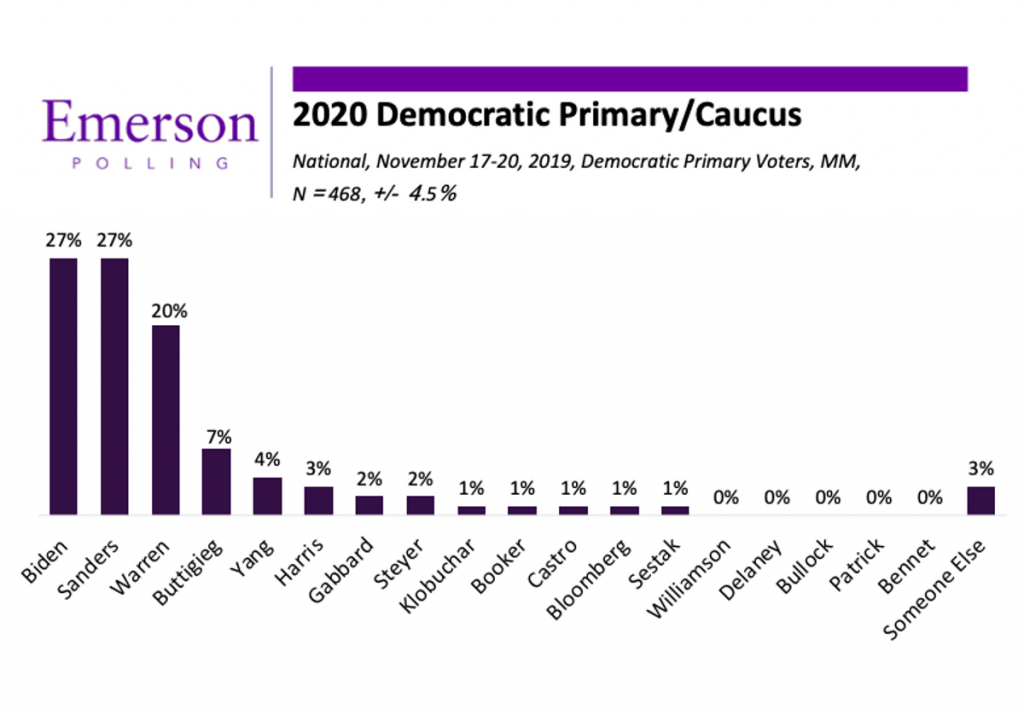




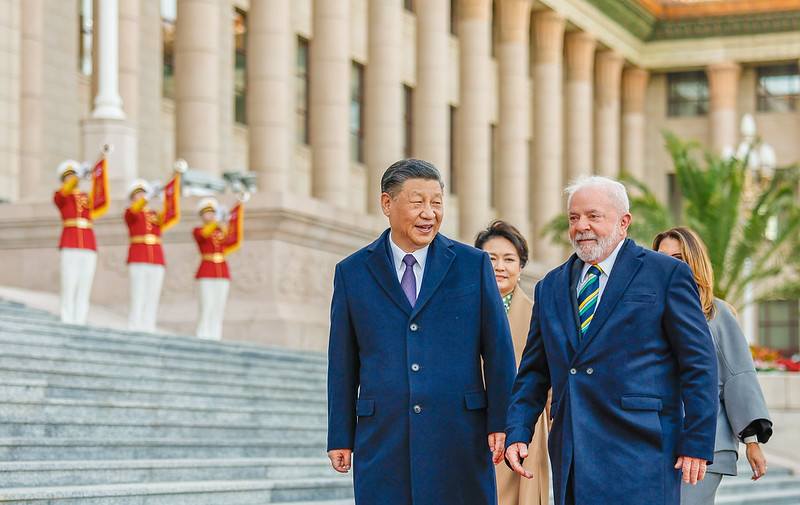
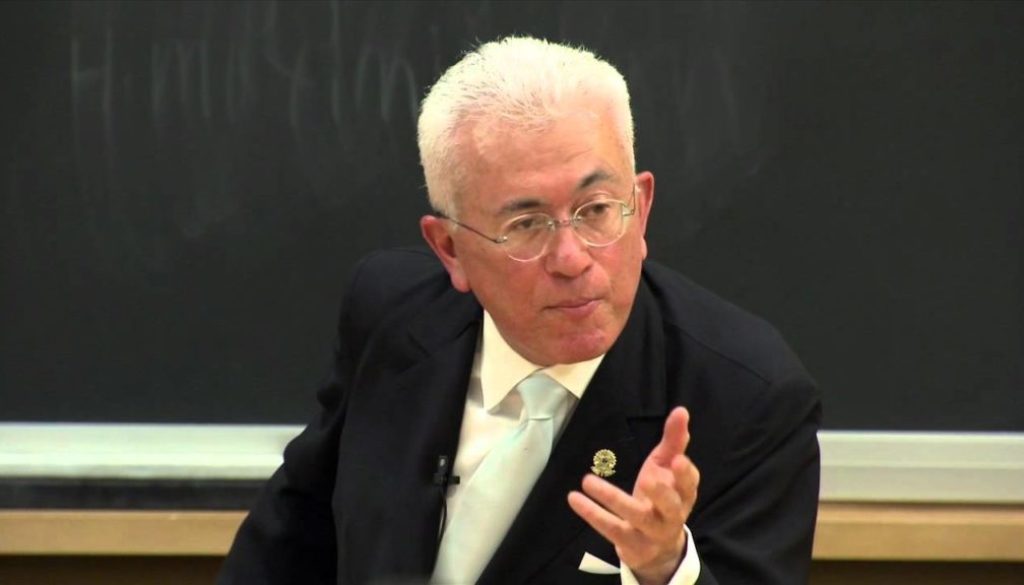


Nenhum comentário ainda, seja o primeiro!